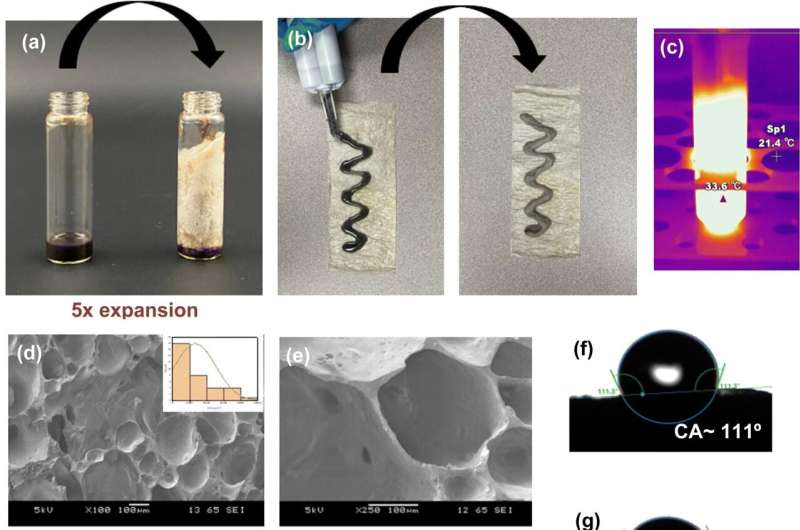Hemostatic Antibacterial Sponge: New Hope for Trauma Care

Researchers at the University of Central Florida have created an innovative hemostatic sponge bandage, called SilFoam, designed to combat life-threatening bleeding and infections from severe injuries. Published in Biomaterials Science, the study details how SilFoam offers rapid hemorrhage control and antimicrobial benefits, potentially transforming trauma care.
Aiming to Save Lives Quickly
"Fatalities from heavy bleeding often happen within the first 30 to 60 minutes," explains Kausik Mukhopadhyay, a materials science professor and co-author of the study. "Our goal was to develop a simple solution capable of saving lives in that critical window, allowing medical personnel to take over."
How SilFoam Works
SilFoam is a liquid gel composed of siloxanes, activated by a two-chamber syringe that expands the gel into a sponge-like foam upon mixing. The sponge exerts pressure to stop bleeding and incorporates silver oxide for its antibacterial properties. A five-milliliter injection of the gel expands to roughly 35 milliliters, forming a porous structure that helps seal wounds and supports natural clotting. The material's heat generation during the reaction speeds up the hemostatic process, while oxygen released during expansion prevents rigidity.
Testing with Innovative Models
The researchers conducted initial trials using realistic anatomical models with synthetic blood vessels. This approach allowed them to bypass invasive animal testing while refining the technology. Their studies showed that SilFoam offers several benefits compared to existing treatments, including better leakage prevention, no cold storage requirements, lower cost, and easy application.
Safe and Painless Removal
Graduate student Pritha Sarkar ensured the sponge was safe and easy to remove by optimizing its adhesive properties to avoid tissue damage. "Our polymer system doesn’t stick to the skin, making removal painless and risk-free," she says.
Antibacterial Testing and Future Directions
Melanie Coathup, a UCF medicine professor, led efforts to assess SilFoam's antibacterial efficacy, finding it highly effective against bacteria common in traumatic injuries. With promising lab results, the team plans to collaborate with the University of Nebraska Medical Center for animal trials.
Mukhopadhyay, who recently received a GAP award to support SilFoam's licensing, sees the project as a significant leap toward lifesaving treatments in emergency care.
Story Source:
Materials provided by University of Central Florida. The original text of this story is licensed under a Creative Commons License. Note: Content may be edited for style and length.
Journal Reference:
- Pritha Sarkar, Abinaya Sindu Pugazhendhi, Melanie Coathup and Kausik Mukhopadhyay. Antibacterial sponge for rapid noncompressible hemostatic treatment: spatiotemporal studies using a noninvasive model. Biomaterials Science, 2024 [abstract]

0 Comments